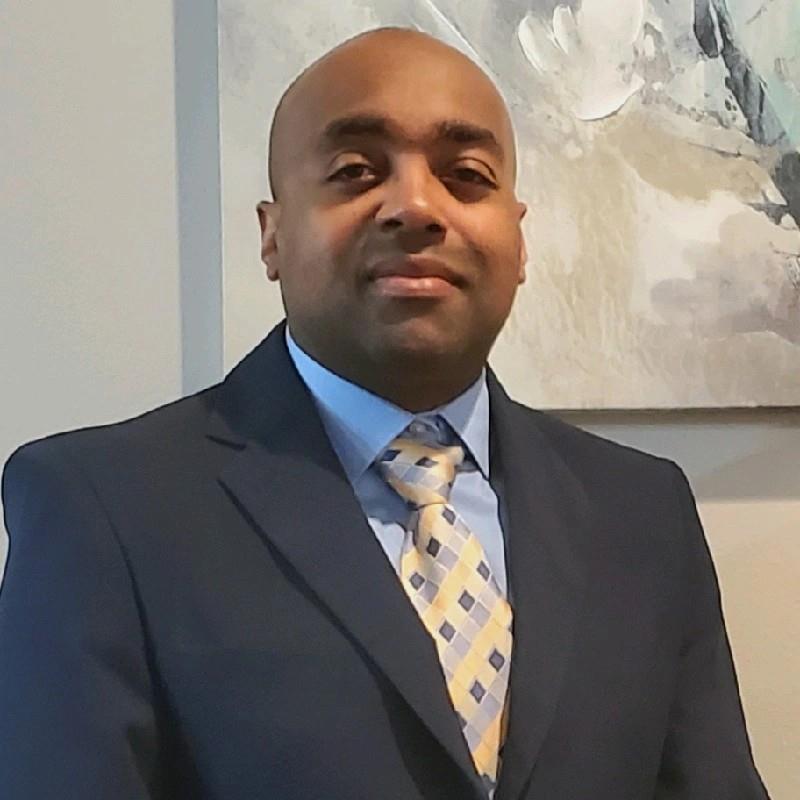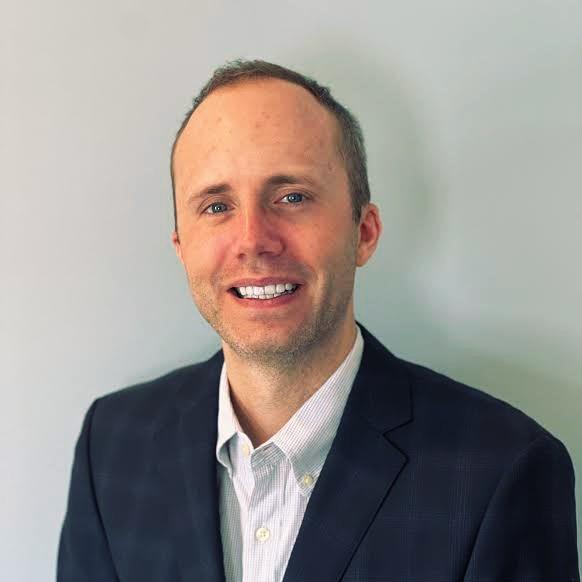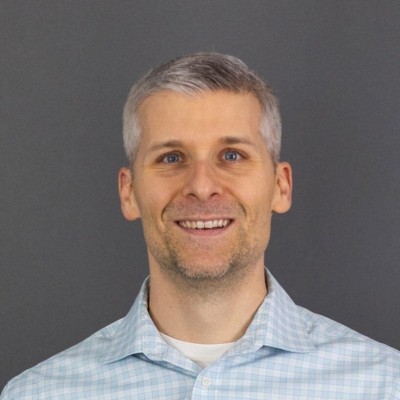The Ultimate Guide to Content Strategy for Business Growth
In this episode of the Medical Sales Podcast, Samuel sits down with medtech strategist and creator Omar M. Khateeb to unpack how startups, reps, and leaders can win attention and turn it into revenue in 2025. Omar shares why LinkedIn is still the #1 starting point, when to expand to X, Meta, and YouTube, and how senior leaders at brands like Intuitive and Zimmer use storytelling to engineer markets. They dig into what actually gets attention (novelty, unpredictability, depth), why “goals” matter less than the systems behind them, and how to think about changing minds through desire, social proof, and early adopters. You’ll hear practical content rhythms (start with 3 posts/week), ways to leverage AI without sounding generic, and how founders and reps can build trust with transparency, consistency, and real value. They also hit the creator mindset: stop over planning, start publishing, seek inspiration, and measure what moves the business not just likes. If you’re trying to break in, become a top performer, or scale a medtech brand, this conversation gives you the playbook to create, engage, and convert. Subscribe and share with a colleague who needs the edge.
Connect with Omar M. Khateeb: LinkedIn
Connect with Me: LinkedIn
Love the show? Subscribe, rate, review, and share! Here’s How »
Watch the episode here:
Or Listen to it on your favorite platform:
Episode Transcript:
00:05 – Samuel Adeyinka (Host)
Hello and welcome to the Medical Sales Podcast. I’m your host, samuel, founder of a revolutionary medical sales training and mentorship program called the Medical Sales Career Builder, and I’m also host of the Medical Sales Podcast. In this podcast, I interview top medical sales reps and leading medical sales executives across the entire world. It doesn’t matter what medical sales industry from medical device to pharmaceutical, to genetic testing and diagnostic lab, you name it. You will learn how to either break into the industry, be a top 10% performer within your role or climb the corporate ladder. Welcome to the Medical Sales Podcast and remember, I am a medical sales expert, sharing my own opinion about this amazing industry and how it can change your life.
00:50 – Omar M. Khateeb (Guest)
What does it mean to be wealthy, right? So for some people it’s like what it means to be wealthy is like you got a million dollars in the bank, right? Well, to somebody like Bill Gates, he would kill himself if he had a million dollars in the bank, right? So it’s all subjective. Everything in life, like there’s, reality, is a lot more subjective and perception based than we realize. And so when it comes to good content, right, you’re kind of one of the judges of that, right. And again, like, there’s a certain thread you have to. You know balance you need to have between, like what you think is really good content versus what people are interested in, sure, right. But again, there there’s, it depends on your goals. There’s certain people who have like such mundane I’m trying to think of like a like because instagram is so competitive. Yeah, I’m trying to think of like an example there is something that’s like so mundane that if somebody just shows up consistently over and over again, that by itself that level of consistency is interesting.
01:52 – Samuel Adeyinka (Host)
That’s when that’s when you know what I’m making clearly yeah, that’s part of it.
01:58 – Omar M. Khateeb (Guest)
Like, look like there are brands like solopreneur, creator brands that have a few thousand followers but they’re making like six figures a year through that. There’s people that I personally know who have like a million followers. They can’t monetize their audience.
02:13
Right, you know what I mean and so, and so it just it, it it really. It really depends. And again, like, social media is a vehicle, like, I think you are a chump if you’re just using social media to get followers and likes. Sure you got to use social media to make money, to drive a business, to make something happen. So a lot of this is also determined when you interact in the physical world. Keep in mind I’m saying physical, not real world. Social media is the real world, physical world is a real world and so a lot of times there’s certain clients that we’ve worked with where they get some engagement and everything. We had a client that had no LinkedIn page. We started their LinkedIn page a few weeks ago. We got like 300 followers at this point, but their CEOs this is amazing because we’ve already had two reporters- reach out.
03:06 – Samuel Adeyinka (Host)
Yeah, it’s producing for them, right, yeah?
03:08 – Omar M. Khateeb (Guest)
so it just depends. I mean, look, I’ll give you another example. You know, uh, I work, put a lot of work into my podcast, I put a lot of money into it. This is I’ve gone through a lot with that one of the. There’s a lot of like moments where I was like man, like I’m on the right track. One of those moments I’ll never forget was at LSI this past year. Gary Guthart, then CEO of Intuitive Surgical or, I’m sorry, they dropped the surgical many years ago I always say that intuitive, right, he’s now chairman. Okay, this guy is the head of the most powerful company in our industry by market cap. I go to shake his hand and I say I’m Omar, and before I can finish my statement, he’s like oh no, I know who, you are Right. And then, like I just thought he was being nice and I talked to Scott Pantel and Scott tells me he’s like yeah, he’s like. I told Gary about you and he’s like do you know Omar Kutib?
04:01 – Samuel Adeyinka (Host)
And Gary’s response was like how can you not know who Omar is?
04:05 – Omar M. Khateeb (Guest)
right and I was like all right, I’m doing something wrong Doing something yeah.
04:08
Yeah, and again, to me it’s important to somebody like him or some of these old school, extremely tenured, seasoned med tech leaders that they respect a lot of my work.
04:22
Right, there’s a lot of again not to compare, but there’s plenty of people in our industry who are getting a lot of engagement from our peers, a lot of likes and everything, but behind closed doors the most powerful people in our industry will complain to me about them and it’s like this person doesn’t know what they’re talking about. This person puts these posts out. It’s really dumb, no depth, there’s no, no, like nothing, nothing of value there. Right, and again, you have to pick and choose. Like I’ve put out things that those same people would criticize. Like I’ll never forget one of the one of the guys who’s being in our industry send me a message about a post that I made and he wasn’t crazy about it, but I’m like hey, man, part of the the game and that post was not meant for people like you, so you may not like it, but the people that I wanted that for, they love it.
05:07 – Samuel Adeyinka (Host)
Right. So it sounds like for people listening right now that are thinking about how they’re going to promote themselves and their businesses on LinkedIn. You’ve got to be crystal clear what your end goal is. Is your end goal to bring in a customer? Is your end goal to get in front of certain people within your space? Is your end goal to just be known by certain companies? You got to be crystal clear about what your end goal is, and that pretty much determines what’s going on with your content. It sounds like that’s what you’re saying.
05:32 – Omar M. Khateeb (Guest)
Not necessarily, because when you have an end goal, I always feel like goals are directionally good, but it’s not what you want to work on. Right Systems are better. And so I’ll give you an example. If, like, your goal is you want to bring X amount of revenue, right, you need to elevate above that and say, okay, like, what are the things that I have to do to get there? Right, like, who do I have to become? If you focus more on those things in the systems to get you there, you will either hit that or you’ll exceed it. Right. And then the other side of it is that, again, if you, if you focus on social media, having one very specific thing, if you want, if you want social media to just the whole goal is like to generate, like revenue from it. You know, then we get into the whole talk topic about like, okay, content management, paid ad strategy, et cetera, right. But again, the main goal of social media is getting attention and engaging with people. So it’s like, ok, what kind of content can I put out that like people who follow me would enjoy? What kind of things can I do to engage other people, what kind of comments can I leave, etc. And then how do I use this to make me better? A lot of like. I’ll give a shout out to one of our customers.
06:39
So, robert Hamilton. He’s the CEO of CEO and founder of Neurosignal. He started putting out content. We ghostwrite for him, but a lot of it is him actually Putting out content. That’s unseen before. He talked about their accounts receivable as a startup. They’re not a public company, they don’t have to talk about that, but he put a chart out of their accounts receivable. He’s like yeah, I really want to be a lot more transparent about like, what does it take to run a med tech company? That’s going to get attention. It generates a lot of like value. It also, you know. The other thing is that sometimes you want to put out on social media consistently who you are and what kind of values you are, because then, like, when you meet people, they feel like they know you are right.
07:19
That was like, if we want to go way, way back, one of the reasons why I started like really using LinkedIn and we’re talking about 2013, 2014. I don’t know if you remember what LinkedIn was like five years ago, but, like 10 years ago, I can tell you it wasn’t that great. My biggest thing was like hey, I have this unwavering conviction and belief about my capabilities as a marketing manager. It was like, back in the day, these recruiters who, by the way, way, like, for every one good recruiter there is, there’s like 99 like worth of ones okay, they do essentially if I’m gonna go off a little bit on on the I’m gonna, I’m gonna go off the rails on this they essentially do the job of like, like a chimp can do, which is like, oh, like, let me get this resume and let me count up the number of years of experience this person has.
08:07
And so, for me, I was like you know what? I’m tired of playing that game I’m not going to win, and so I’m going to go directly to the market. I’m going to write Very long, deep articles about marketing, about psychology, everything. I’m going to demonstrate that I’m the right guy. And those articles, over a period of like five or six months, actually paved my way to a company literally making a job out of nothing for me and moving me out to the Bay Area, right, and so a lot of those things is like how do you put yourself out there in a way so that before somebody meets you, they know about you. What’s the purpose of marketing right marketing product is so that by the time you have somebody to meet or you’re about to buy the product you feel like you have in mind, yeah, why?
08:50
do you look? Apple release the the 17. They’ve already started marketing like what’s different about it? Why are they doing that? Because they don’t want you to spend that time on their website or in person trying to figure that out. They want you to spend that time on their website or in person trying to figure that out. They want you to know that ahead of time. So again, you shorten the decision cycle.
09:06 – Samuel Adeyinka (Host)
So shorten the decision cycle. So you said earlier about going back to the consistency and seeing the same thing all the time, and there are certain players out there that you just see their content all the time and you almost expect to see their content. Talk to us a little bit about what it looks like to change people’s mind. I think what’s really fascinating that I’ve seen especially this year, is I’ve seen people subscribe to a belief system and then, because of the consistency of a content creator, they literally start to change what they believe in and if the content creator gets more popular, they have a deeper subscription to this new idea that this content creator is proposing and the person that’s getting all the content has now is singing a completely different song than what they were singing last year. Talk to us about that dynamic.
10:01 – Omar M. Khateeb (Guest)
Yeah, so you started by asking what does it look like to change somebody’s mind? So the mistake people make is wasting time trying to change someone’s mind. Okay, you cannot change somebody’s mind. Only a person can change their mind. And so if you go back to again, we’re talking about like depth here.
10:21
Greatest copywriter, probably the most sophisticated marketing book ever, was Breakthrough Advertising by Eugene Schwartz, and one of the concepts he had in there is that when it comes to desire, you don’t create desire out of nothing. You have to channel it. So if you put out ads and copy, that ad and copy has to essentially go and unearth an already existing desire. You see what I mean. And if you think about early adoption, early adoption is essentially you find somebody, you tell them close your eyes and let me talk to you about the future. They can see that future with their eyes closed, right, you don’t have to show them anything more, right? But then there’s later adopters who will change their mind, because in order for that person to change their mind, they need to know that there is the tribal acceptance, or like mass social proof, of a concept, right? So think about, in this country, politically, there were some concepts a few years ago that, like, a lot of people were like oh yeah, I’m very much in support of this, but little by little by little, Completely different song.
11:31
People have changed. There are things that people used to put up with in this country a few years ago not putting up with it anymore today, right, and that’s more than just like social proof. There’s authority bias. There’s like anymore today, right, and that’s more than just like social proof. There’s, there’s an. There’s authority bias. There’s like all kinds of biases, like there’s there’s a formula that subconsciously exists in everybody’s head it’s in yours and it’s mine about what it would take to change their minds.
11:52
Right, I’m an Apple iPhone user. Okay, I’m, I’m always going to use iPhone. I love, I love the Apple products, and even though I’m not crazy about the iPhone, siri and stuff, there are a certain amount of things that are going to be important, that need to happen for me to actually depart from my iPhone. You see what I mean and I’m making this up, by the way, I genuinely just like using the iPhone because I’m used to it, it’s convenient, I’m kind of a mainstream late adopter for it, but like one of those things that, like, I don’t know about you, but like there is a stigma among, like, entrepreneurs and CEOs. For somebody who’s using an Android phone, it’s immediately like there’s a, there’s like a. There’s a hierarchy there. Like I was talking to somebody the other day and we I brought this up and he’s like, yeah, anytime I see somebody who brings a new friend and I don’t know anything about that person, they open and open their phone. It’s an android, I just think, man, where?
12:49 – Samuel Adeyinka (Host)
do they find this?
12:50 – Omar M. Khateeb (Guest)
guy wow, okay, you know, but that’s how people work, that’s how they their company, whether you’re a service group or you have a technology etc. Going for a very small group of people who would be your tech enthusiasts, early adopters, is a smart thing, because they see, with their eyes closed, they don’t need all these other things that are needed in the other market, like they don’t care about social proof, they don’t care about this or that or the other. And then the other side of it is like like if you can’t do a good job of satisfying and, let’s say, meeting the expectations of a small group of people, what makes you think you can do that at scale? Right, it doesn’t get harder, it just becomes more and more of the same, right, but at scale. You see what I mean.
13:37 – Samuel Adeyinka (Host)
I hope you’re enjoying today’s episode and I want to let you know our programs cover the entire career of a medical sales professional, from getting into the medical sales industry to training on how to be a top performer in the medical sales industry to masterfully navigating your career to executive level leadership. These programs are personalized and customized for your specific career and background and trained by over 50 experts, including surgeons. Our results speak for ourselves and we’re landing positions for our candidates in less than 120 days in top medical technology companies like Stryker, medtronic, merck, abbott you name it. Would you run an Ironman race without training and a strategy? You wouldn’t, so why are you trying to do the same with the medical sales position? You need training, you need a strategy and you need to visit evolveyourassesscom, fill out the application schedule some time with one of our account executives and let’s get you into the position that you’ve always dreamed of. Mm-hmm, mm-hmm, mm-hmm. Oh, I hear you.
14:40 – Omar M. Khateeb (Guest)
I hear you. I hear you, so you consider yourself a content creator right Omar, yeah I make content. So I consider myself a creator, if there’s anything. I’m a creator in the sense that every day I wake up and I think I’m like you know what? What can I create today that will get somebody’s attention or delight somebody or educate somebody, you know? So, yeah, I consider myself a creator. I think we’re all creators to a certain extent.
14:59 – Samuel Adeyinka (Host)
Just some of us do it a lot more than others, obviously, sure, sure and would you say that in today’s day and age, there’s more content creators than ever, than there’s ever been? Or actually, you even say you would. Okay, you don’t know. So what would you say, from your perspective, is the biggest challenge when it comes to content creation? What’s’s just from what you’ve seen, what you’ve experienced you’ve been doing this for a while now what has been the consistent challenge that you’re like? This is probably one of the biggest challenges when it comes to content creation.
15:28 – Omar M. Khateeb (Guest)
Just getting started, like, look, actually I’ll again let me go deep on this for a second, please do, please. Do so like, I think you and I are about the same age, but I’m a millennial, I’m an older millennial. So, when it comes to content creation, the millennial approach is like oh man, you know what I’m going to. I’m going to create an Instagram handle, I’m going to start putting out some content. You know, like I need to get like a phone stand, and then I need to get like some lighting, and then like, let me make a content calendar, let me think about this and everything. The Gen Z approach is like I’m just going to pick up my phone, I’m going to make a video every day, every day, like I’m going to explain this concept.
16:04
I’m going to put makeup on while I’m doing it. Right, you know it’s a Gen Z is so good about, just like, let me just start doing it, yeah, yeah, and so that, and I try and adopt that approach. I have plenty of criticism of Gen Z z, but there’s a lot of things I learned from like dude gen z man. They take action. You know, and I think that’s the biggest barrier is that people get in their head about content and it’s like again using the analogy of working out, if your thing is like I need to start getting in shape, and you go to the gym, right, and you start comparing yourself to the dude or gal who’s like a bodybuilder and they’re lifting a bunch of weight and they’re like jacked.
16:43
They’re juiced to the gills. Like you would not want to go to the gym. You would feel very bad. Don’t compare yourself to these people, right? That’s that’s one of the the. I think the like it’s a great life lesson. Do not compare yourself to other people and I do that to myself sometimes like we’re just, we’re human. But you should not waste time comparing yourself. You just can’t do that, right. The only thing you can compare yourself is am I better or worse than who I was yesterday, a week ago, a month ago, et cetera. That’s it, you know. But I think that people just get in their head about it and what you have to understand as a business owner is that these are like table stakes.
17:22
You used to be this unique thing, right, look, paypal, who did $31 billion and revenue. They posted a, a uh, a job. That was called head of ceo content. It’s someone who’s going to be the head of creating content for the ceo. Yeah right, open ai. I know we talk about ai and there’s all this like doom or gloom. Doom and gloom about ai and stuff. Right, that that’s a whole other conversation. But like open, ai posted a job, a 300K salary. I mean, they got the money. Head of content.
17:59
Like is a content strategist or something Open AI, right, you know. So, like these are table stakes and it’s just like it’s the entry point to the game. You know, if you’re going to be in business, you might as well be in business to be the best and to make money. You know what I mean. And and obviously part of that is like the. The bigger focus was like to deliver unwavering value and impact and, of course, money is the by-product of that. But, like you know, when I started business, I didn’t do it to have like a worse life and to have like. You know what I mean. I did it. I did it to be the best at it, and so these are just. This is just part of it. And, to your point, as you grow as a business, it doesn’t get easier, it becomes more, but as it becomes more, then we have a budget to play with. I’m not publishing my podcast anymore.
18:45 – Samuel Adeyinka (Host)
You have more work to do with what you want to do.
18:47 – Omar M. Khateeb (Guest)
Absolutely. Yeah, like I have a production team now.
18:56 – Samuel Adeyinka (Host)
I don’t have to do this stuff, you know, yeah, so yeah, fascinating Omar, this has been fantastic, you know, for our audience listening, like, like you said, we have people trying to get into med sales, with people in med sales, with people leading med sales, and we have CEOs listening to. What would you want to tell them? Wrapping up this conversation about content creation?
19:08 – Omar M. Khateeb (Guest)
Just get started with it. Stop like don’t overcomplicate this stuff, like literally, you can start by just taking a picture of a book and like posting and sharing some some things that you learned from it, right, I think again like part of content creation. It’s, I think people need to get back. It’s almost like keeping a journal and writing and thinking. It’s just that’s how I see this. It’s not just like social media for like whatever sake. I think there’s value. I mean, look, you want like great example of like inspiration. Go on x. Yeah, it’s hard to grow. Next, there’s people who put out like really in-depth essays, pieces of content on topics and everything on x and it like inspires me to be better and for me to go deeper on these topics. I like it.
19:51 – Samuel Adeyinka (Host)
you know, before we wrap it up, actually, there’s one more thing that I don’t think is talked about enough, and it’s what you said about inspiration. I think it’s hard to be a content creator and only produce content. I think at some point, there needs to be a balance of where, what are you being inspired by and what’s feeding you, so that you can continue to feed others. Talk to us a little bit about what you do to create that.
20:16 – Omar M. Khateeb (Guest)
How I create. Talk to us a little bit about what you do to create that, how I create inspiration. Yeah, I, you know like that’s a. That’s actually a great question. I mean, as you can see, I’m a big reader and so I I draw a lot of inspiration from books, but I also try and draw an inspiration from, like, other people. There might be some like I. I remember there’s like, for example, naval Naval is a famous investor and like brilliant guy and his thinking is so simple and clear. He just cuts through the noise. He’s a great follow on X.
20:46
When I see that I’m like man, inspires me to get better, right. Inspires me to read more, to think deeper on topics just be very, very clear about things, right. Inspires me to read more, to think deeper on topics just be very, very clear about things, right. And I think, again, part of the inspiration is that you have to be motivated as a person to say like, yeah, I know that there’s a lot in me, I know that I can be better, and so what do I got to do to work on myself, to improve on myself, right? How do I progress and grow? I think that’s why, and I think, if you want to take this deeper. I mean, look, you have an organization that develops and works with a lot of medical sales professionals and everything. I think some of the most frustrated people in the employment world are people that not only have no pathway to growth, but they don’t develop opportunities for themselves to grow.
21:34
And it just becomes the same old thing over and over again, and you know, and those people get frustrated that they’re not progressing in life when they haven’t taken the steps themselves to say how can I be better?
21:45
Yeah, you know, and it could be and you know people and Samuel, I’ll tell you this, like it could be as simple as just that. Hey, like you know, I, I have a certain reaction or a habit that I’ve developed through childhood, and so how would like somebody I really am inspired by or somebody who I admire, like how would they handle the situation? Right, you know, and I think that’s that’s. The other thing is that sometimes, like mimicry is like the best way for you to learn is to think about like OK, if I, like I’ll give, like this is a radical example, but like I’m not building like humanoid robots or rocket ships. Right, I’m running, I’m running a growth and marketing agency. We’re doing some stuff with AI, but that’s it, it’s nothing crazy. A growth and marketing agency for doing some stuff with AI, but that’s it, it’s nothing crazy. I’m inspired by Elon Musk’s ability to take radical, insane action and just be like unwilling to cave to it. Like can I? Can I take one second to share one of my, one of the stories I love?
22:47 – Samuel Adeyinka (Host)
about it.
22:48 – Omar M. Khateeb (Guest)
Okay, all right.
22:50
So there there’s two of them.
22:53
One of them you can look up, is Jensen Huang, the CEO of NVIDIA, talking about I think they were building some kind of supercomputer and that the actual timeline that come back, they land, like, as they’re landing, those little chops come out and catch the rocket, okay, so elon got these supposed experts all together physicists, math, mathematicians that are to figure this out. They came back to elon. They’re like hey, man, the math doesn’t work, it’s going to take like maybe 10 years to do this. And elon’s response I’m kind of watering down is like piss off, it’s not going to take 10 years, we’re going to do this in like six months, okay, and he, he just like fired anybody who did not believe in that and and and brought in the people who were motivated, who just worked hard toward this goal and who believed it, and they accomplished that in a very short amount of time. And so one of the tweets that Elon Musk put out that I really like, and actually you know what, I saved it on my phone. It’s actually right here.
24:07 – Samuel Adeyinka (Host)
Let me look for it. Yeah, share it, share it.
24:10 – Omar M. Khateeb (Guest)
I want to make sure that I read it correctly. I love this quote. Here we go. The tweet that he put out or I guess it’s no longer a tweet, the X post he put out is stop being patient and start asking yourself how can I accomplish my 10-year plan in six months? You will probably fail, but you will be far ahead of the person who simply accepted it would take 10 years. I think there’s so many things that we just accept as conventional wisdom but you’ll be far ahead of the person who simply accepted.
24:42
It would take 10 years, and I think there’s so many things that we just accept as conventional wisdom. You know what I mean. Right, and so that’s. I think that’s one of the most important, probably the best pieces of advice I can give to people is just really not taking convention to heart, taking extreme, unwavering action right and developing that like deep conviction about something Like that’s a big thing.
25:02
So like I draw inspiration from people like that and again, like the guy’s running like five or $6 billion companies, like he’s doing all kinds of things. Tried to fix the government. You know, kind of worked semi, you know, but you know. So that’s what’s what I do and again, like I think for people, look at your own interests and see what kind of podcasts exist out there, what kind of people exist, and and follow those people emulate you know I love it.
25:28 – Samuel Adeyinka (Host)
I love it, omar. Thank you for this time today, omar. It was awesome spending this time, good to see you again. We have to do it again and we can’t wait to see all the amazing things you and your company are about to do. I hope you enjoyed today’s episode and remember I have a customized and personalized program that gets you into the medical technology industry as a sales professional or any type of role for that matter. Become a top performer in your position and masterfully navigate your career to executive level leadership. Check out these programs and learn more at EvolvesAssesscom by visiting our site, filling out an application, scheduling some time with one of our account executives and allowing us to get you where you need to be. Stay tuned for more awesome content with amazing interviews on the Medical Sales Podcast.



























































































